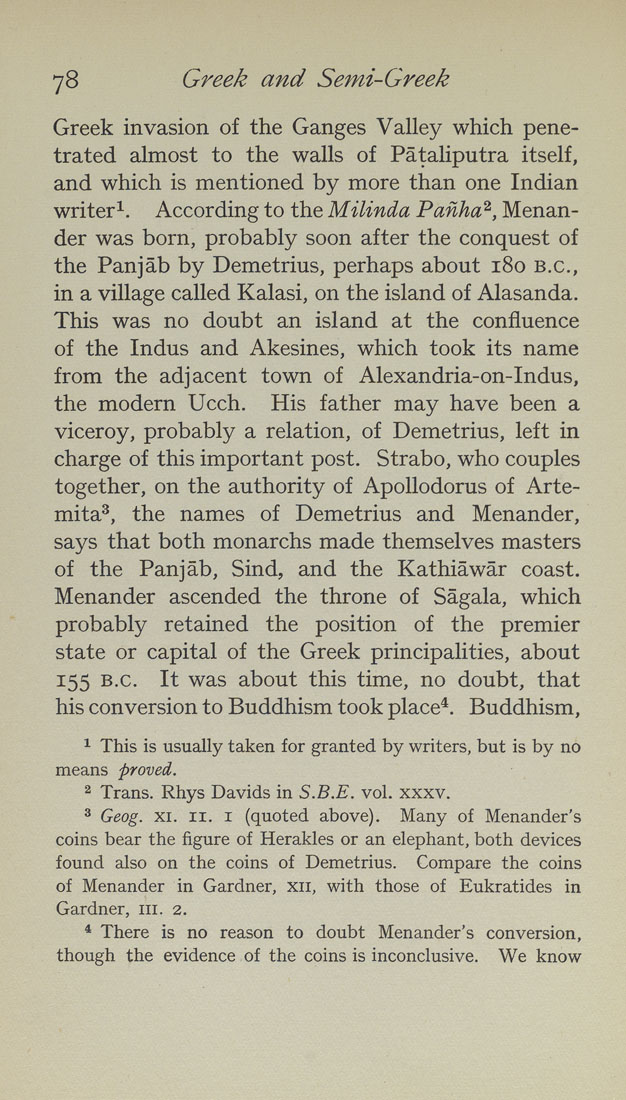78 Greek and Semi-Greek
Greek invasion of the Ganges Valley which pene¬
trated almost to the walls of Pataliputra itself,
and which is mentioned by more than one Indian
writer^. According to the Milinda Panha'^, Menan¬
der was born, probably soon after the conquest of
the Panjab by Demetrius, perhaps about 180 B.C.,
in a village called Kalasi, on the island of Alasanda.
This was no doubt an island at the confluence
of the Indus and Akesines, which took its name
from the adjacent town of Alexandria-on-Indus,
the modern Ucch. His father may have been a
viceroy, probably a relation, of Demetrius, left in
charge of this important post. Strabo, who couples
together, on the authority of ApoUodorus of Arte-
mita^, the names of Demetrius and Menander,
says that both monarchs made themselves masters
of the Panjab, Sind, and the Kathiawar coast.
Menander ascended the throne of Sagala, which
probably retained the position of the premier
state or capital of the Greek principalities, about
155 B.C. It was about this time, no doubt, that
his conversion to Buddhism took place*. Buddhism,
^ This is usually taken for granted by writers, but is by no
means proved.
2 Trans. Rhys Davids in S.B.E. vol. xxxv.
^ Geog. XI. II. I (quoted above). Many of Menander's
coins bear the figure of Herakles or an elephant, both devices
found also on the coins of Demetrius. Compare the coins
of Menander in Gardner, xii, with those of Eukratides in
Gardner, in. 2.
* There is no reason to doubt Menander's conversion,
though the evidence of the coins is inconclusive. We know
|








